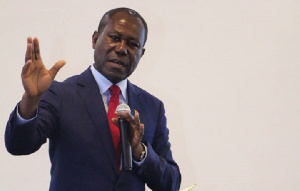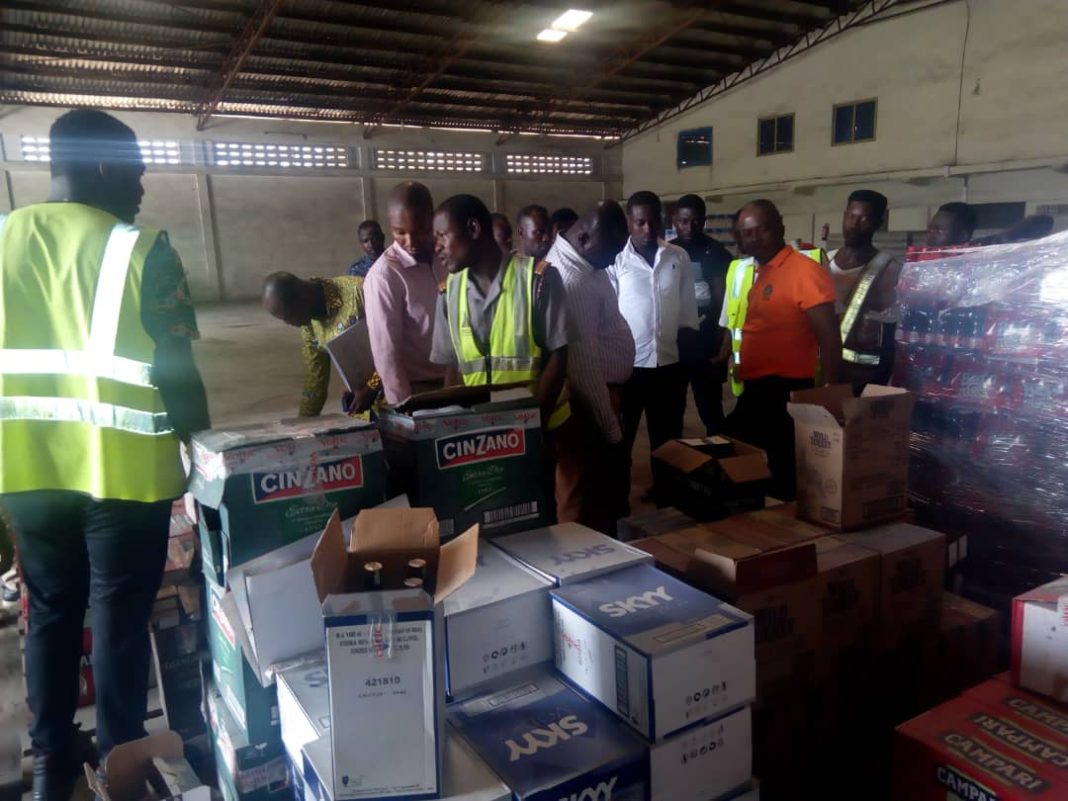CCIFG and KPMG organised a Business Breakfast on the 2019 Budget

Facilitated by KPMG, the Chamber of Commerce and Industry France Ghana (CCIFG) organised a Business Breakfast meeting to give about 70 members insight into the 2019 Budget at the Accra City Hotel on 7th February 2019.
The breakfast meeting was facilitated by Robert Dzato, KPMG’s Financial Services Strategy & Operations Lead in Ghana. The KPMG presentation focused on global economic developments, the Ghana macroeconomic context, priorities in the 2019 Budget and KPMG’s own analysis of the growth poles and opportunities in the Ghanaian economy.
The presentation began with an overview of the global economic developments, highlighting the outlook of the global economy and prospects for the Ghanaian economy. Commenting on the performance of the Ghanaian economy based on the 2019 budget, as presented by the Minister of Finance, it was noted that the key macroeconomic indicators are trending in the right direction although price stability (Cedi volatility) is a key concern for businesses.
Dilating on the sectoral shifts in the economy, the drop in services sector contribution to the Gross Domestic Product (GDP) in favour of industry was noteworthy. Furthermore, the decision to rebase the economy of Ghana, has expanded the economy size by over 24.6 percent to GHC256 billion, which is equivalent to circa 16 percent of the GDP of Nigeria.
The six priority areas around which core initiatives in the 2019 budget would be deployed are infrastructure, industry, agriculture, revenue mobilisation, entrepreneurial support and social partnership. A number of rail way and infrastructure projects, scheduled for 2019 as announced by the Finance Minister, portend opportunities for investment though these are huge capital investment projects. Government of Ghana’s ambition to build a 1000 year economy is hinged on infrastructure and industrialisation.
Touching on the financial services sector, Mr. Dzato noted that a number of initiatives have been announced in the 2019 budget and the central bank’s regulatory reforms are underway to clean-up the sector and restore customer confidence. According to Mr. Dzato, the impending recapitalisation of insurers, on the heels of banks’ recapitalisation, should see further consolidation of the financial services space.
He noted that the key areas of concern for the business community in Ghana, based on KPMG pre-budget survey insights, include current financial market uncertainties, depreciation of the local currency against major currencies, rising fuel and utility costs. He concluded that the positive trends in the country’s macroeconomic indicators need to translate into the real economy.
For example, while monetary policy rate has declined by 1000 basis points from 26 percent in 2016 to 16 percent in 2019, average lending rates by banks to individuals and businesses remains stubbornly high.
The insightful presentation generated a number of thought-provoking questions and views from participants with a few bordering on the services sector and tax environment.
Responding to questions from participants, Mr Dzato highlighted KPMG’s analysis of historical growth rates of various sectors and their contributions to GDP. He advised businesses to consider investing in the sub sectors with higher growth prospects to enable them take advantage of opportunities in the market place.
Source: goldstreetbusiness.com





